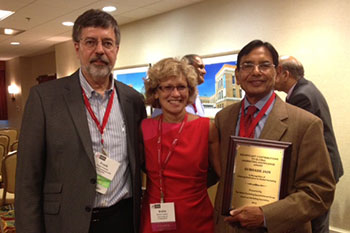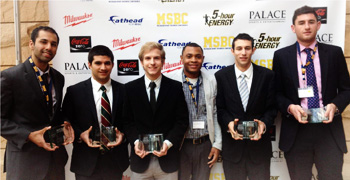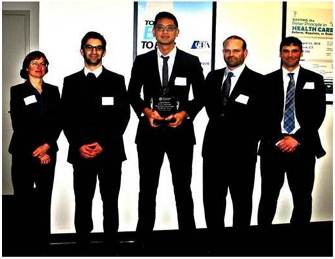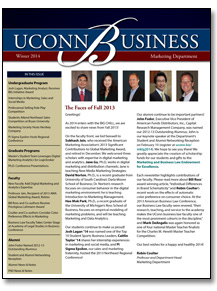 Professor Subhash C. Jain received the 2013 Significant Contributions to Global Marketing Award, honored by the Global Marketing Special Interest Group (SIG) of the American Marketing Association for his preeminent contributions advancement of global marketing and thought. The award ceremony occurred during the American Marketing Association 2013 Summer Educators’ Conference in Boston.
Professor Subhash C. Jain received the 2013 Significant Contributions to Global Marketing Award, honored by the Global Marketing Special Interest Group (SIG) of the American Marketing Association for his preeminent contributions advancement of global marketing and thought. The award ceremony occurred during the American Marketing Association 2013 Summer Educators’ Conference in Boston.
Professor Jain joined the faculty at the University of Connecticut in 1976,after completing graduate work at the University of Oregon, Stanford University, and the University of Rajasthan, India. He has served, with distinction, as Professor of Marketing and Department Head of the Marketing Department. Since 1995, Dr. Jain was Director of the UConn CIBER(except in 1999),and also served as Director of the GE Capital Global Learning Center, School of Business. His teaching, consulting, and research activities included marketing strategy and multinational marketing. Dr. Jain is the author of more than 100 publications, including articles in Journal of Marketing Research, Journal of Marketing, Journal of International Marketing, Journal of Economic Abstracts, Long Range Planning, Journal of Applied Psychology, and Columbia Journal of World Business. He is the author of several books, including Marketing Planning and Strategy, 9th edition (South-Western), International Marketing Management, 7th edition (South-Western), Export Strategy (Quorum Books), and Market Evolution in Developing Countries (Haworth Press).
Dr. Jain has served on the Editorial Review Board of the Journal of Marketing, Journal of International Business Studies, and Journal of the Academy of Marketing Science, and a number of other international journals. He is an active member of a number of professional organizations, including the American Marketing Association and the Academy of International Business. In addition to the American Marketing Association’s Global Marketing Special Interest Group’s 2013 Significant Contributions to Global Marketing Award, he has been honored by the Swiss Management Association for his life-long achievements. Dr. Jain has presented seminars in the United States and abroad, and has frequently served as a consultant to foreign government agencies on their trade problems, as well as to organizations such as Xerox Corporation, General Electric, GATT (now WTO), and United Technologies Corporation.
Dr. Jain has been active in the community as a Treasurer of the Mansfield Democratic Party, and has served on the Boards of the World Affairs Council of Connecticut and Windham Hospital. In 2005, he was appointed as a member of the Connecticut District Export Council by the Secretary of Commerce. In 2006, Dr. Jain was honored by Governor Jodi Rell as a worthy immigrant to the U.S. and a fine representative of the State of Connecticut.
Professor Frank Franzak, Secretary of the Global Marketing SIG, Virginia Commonwealth University; Robin Coulter, Department Head; Subhash Jain, Former Director of CIBER.





